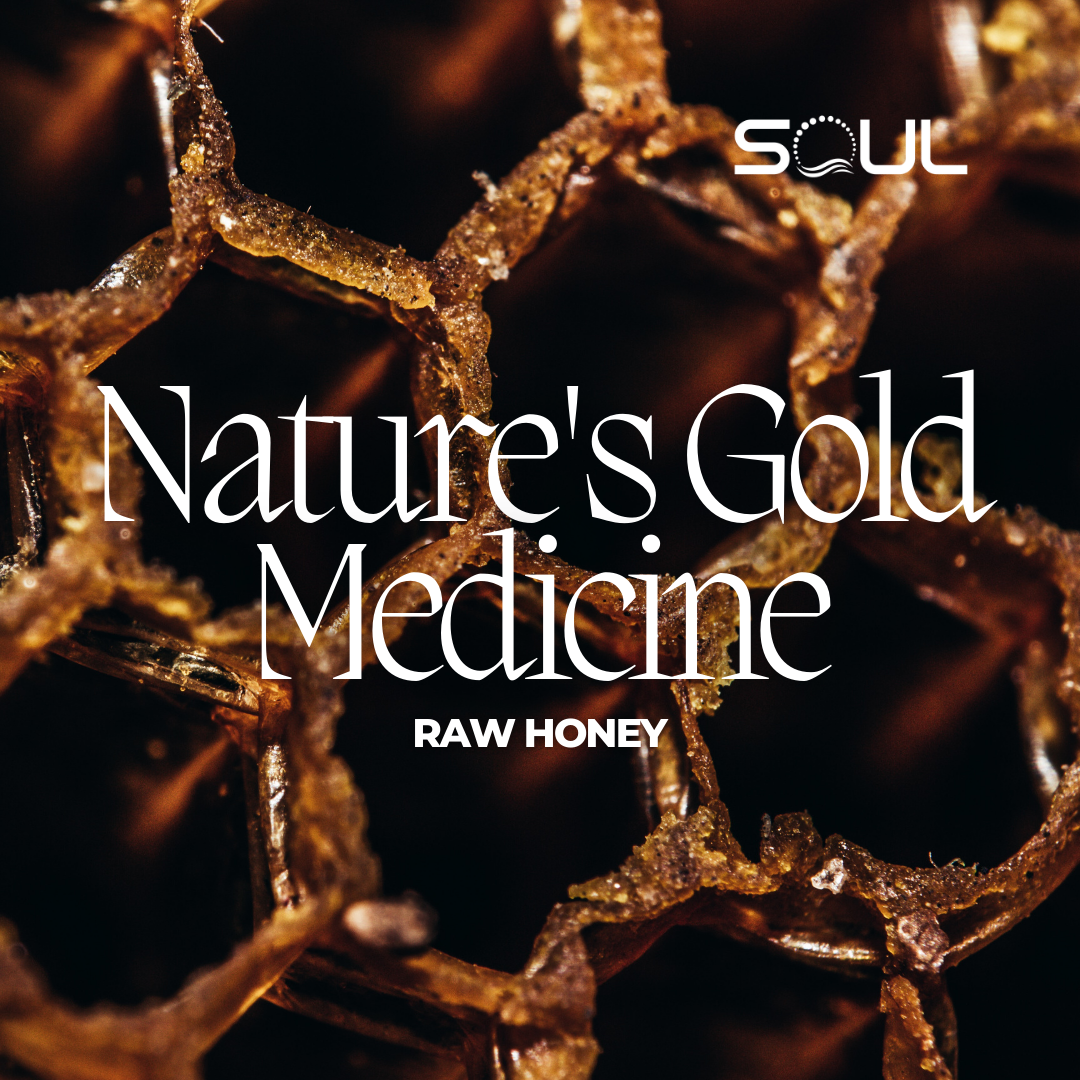
Raw Honey: Nature's Golden Gift or Mechanistic Marvel?
If you were choosing between a processed sugar bomb and the golden goodness of raw honey, well—there’s no contest. Raw honey is nature's sophisticated answer to your sweet cravings. More than a sweet indulgence, it's a complex, nutrient-packed symphony created by our tiny winged friends, the bees. And unlike its heavily processed cousin, raw honey remains unheated, unpasteurized, and unfiltered. This leaves it brimming with the natural goodness that often gets stripped away in mass production. But what makes raw honey so exceptional? Let’s dive into the golden depths of this sweet marvel.
A Sweet Mixture: The Chemistry Behind Raw Honey
You see, raw honey isn’t just sugar syrup spun by bees. It's an intricate, biologically-active mixture of carbohydrates, water, trace elements, enzymes, vitamins, antioxidants, and even amino acids. Each of these components plays a role in how raw honey behaves, how it nourishes, and why it's been revered for centuries.
-
Carbohydrates: Roughly 80% of raw honey is made up of simple sugars like glucose and fructose. Now, mechanistically speaking, these sugars are where the energy punch comes from. A spoonful of raw honey is not just a sugary kick—it’s a quick-hit energy boost, readily absorbed by your body’s metabolic machinery.
-
Water: At 18%, water is the canvas on which this masterpiece is painted. It keeps the honey liquid enough to drizzle, yet dense enough to coat your throat when you need it most. Suspended in this water matrix are the magic ingredients, waiting to work their wonders.
-
Trace Elements: Potassium, calcium, magnesium, and a handful of other minerals—these trace elements may not be the headline stars, but they serve as the essential micronutrients that optimize bodily functions. Think of them as the fine-tuning of a Formula 1 engine. Without them, the system may run, but not at peak performance.
-
Enzymes: Here’s where it gets interesting. Raw honey contains enzymes like diastase, invertase, and glucose oxidase. These are not passive participants; they're biochemical soldiers on a mission. Diastase breaks down complex carbohydrates, invertase splits sucrose into simpler sugars, and glucose oxidase produces hydrogen peroxide—a compound that contributes to honey’s antimicrobial properties. It's like having a natural pharmacy in every spoonful.
The Health Payoff: Sweetness Meets Science
Now, the real magic of raw honey isn’t just in its complexity—it’s in how those complexities translate into health benefits. Like an orchestra, each component plays its part, creating a harmonious melody that your body can appreciate in more ways than one.
-
Antimicrobial Properties: Ever wonder why honey has been used in wound care for centuries? It’s all in the chemistry. Between its low pH, high sugar content, and hydrogen peroxide production, raw honey creates an inhospitable environment for bacteria. Slather it on a sore throat or even a minor wound, and it acts like nature’s antibiotic.
-
Antioxidants for Life: Raw honey is packed with antioxidants—those savvy little molecules that neutralize free radicals and reduce oxidative stress. Think of oxidative stress like rust forming on the body’s inner machinery. The antioxidants in honey act like WD-40 for your cells, ensuring they keep running smoothly. This isn’t just a mechanistic guess—it’s been shown that regular consumption of antioxidant-rich foods can reduce the risk of chronic diseases like heart disease and cancer.
-
Soothing Power: Raw honey is thick, viscous, and rich—its texture creates a protective layer when you swallow it, offering immediate relief to a sore throat. The next time you’re reaching for cough syrup, think twice. Why not let nature soothe you?
-
Digestive Harmony: Enzymes like diastase and invertase aid digestion by breaking down complex carbohydrates into simpler forms that the body can easily absorb. Plus, raw honey acts as a prebiotic, encouraging the growth of beneficial gut bacteria. A well-balanced microbiome is essential for everything from digestion to mental clarity, and raw honey’s got your back.
-
Potential Allergy Aid: Here’s a mechanistic theory worth exploring: some believe that consuming local raw honey can desensitize your body to local pollen, potentially reducing allergy symptoms. The idea is simple—tiny exposures to local allergens, consumed via honey, could theoretically train your immune system to be less reactive. But like any good hypothesis, this one still needs more evidence before we can say it’s gospel truth.
Proceed With Caution: Even Nature Has Rules
Of course, raw honey isn’t without its precautions. If you’ve got an infant at home, hold off. Raw honey can contain spores of Clostridium botulinum, a bacterium that can lead to infant botulism, a serious condition in babies under a year old. Their digestive systems just aren’t equipped to handle these spores.
And while allergies to honey are rare, they’re not unheard of. If you’re allergic to bee products, tread carefully—your body’s immune system may not appreciate even this golden nectar.
Conclusion: Harnessing the Power of Raw Honey
So, what can we conclude? Raw honey is more than just a sweetener; it’s a natural powerhouse packed with energy, antioxidants, and a host of biologically active compounds. It’s a wonder of nature that has earned its place in traditional remedies and modern science alike. Whether you're adding a spoonful to your tea or slathering it on a wound, you’re tapping into millennia of evolutionary refinement.
The next time you dip into that jar of raw honey, remember: it’s not just a treat—it’s nature's golden gift, harnessed by some of the world’s most efficient workers, the bees. Appreciate its complexity, enjoy its benefits.
These statements have not been evaluated by the Food and Drug Administration. This product is not intended to diagnose, treat, cure or prevent any disease. This article is for informational purposes only and is not a substitute for professional medical advice. Always consult your healthcare provider regarding any health concerns or before starting new supplements.